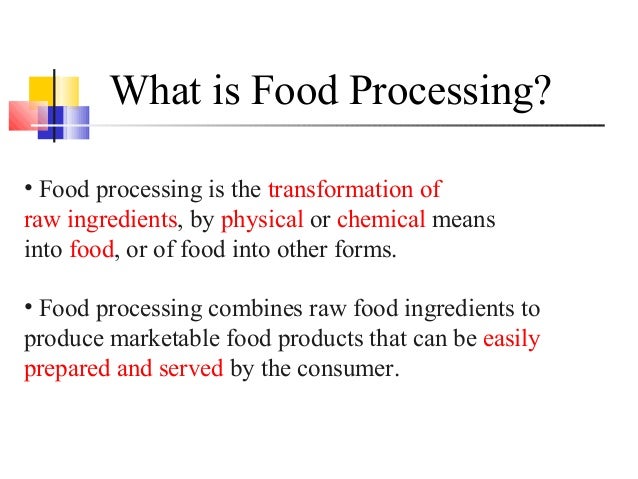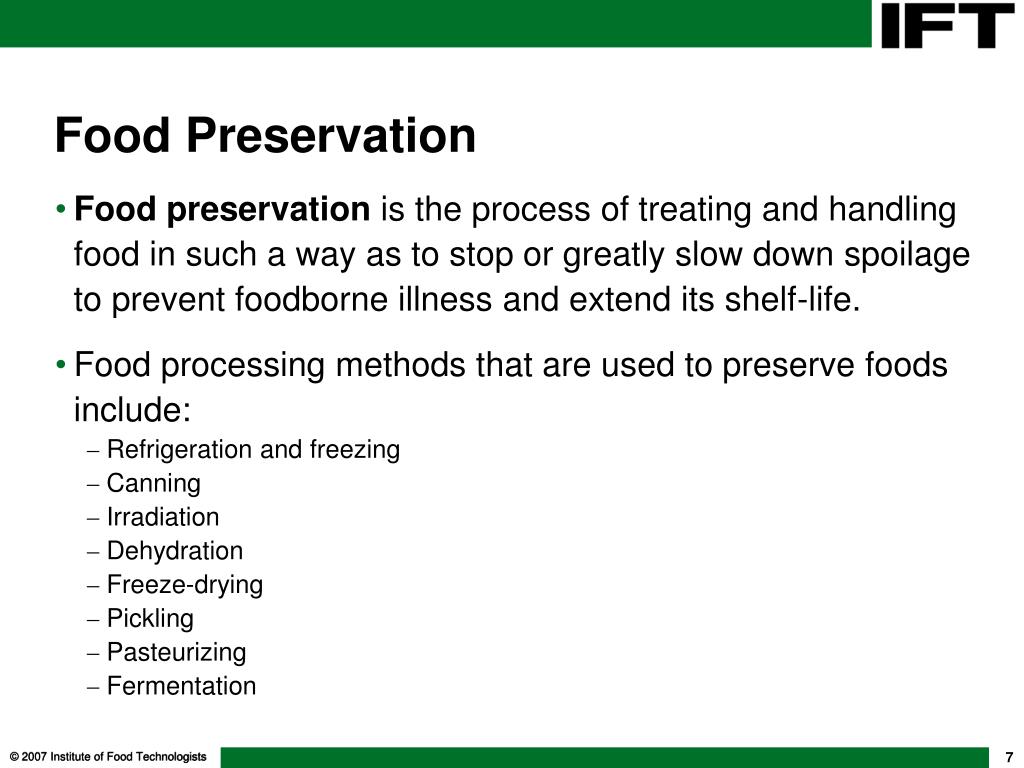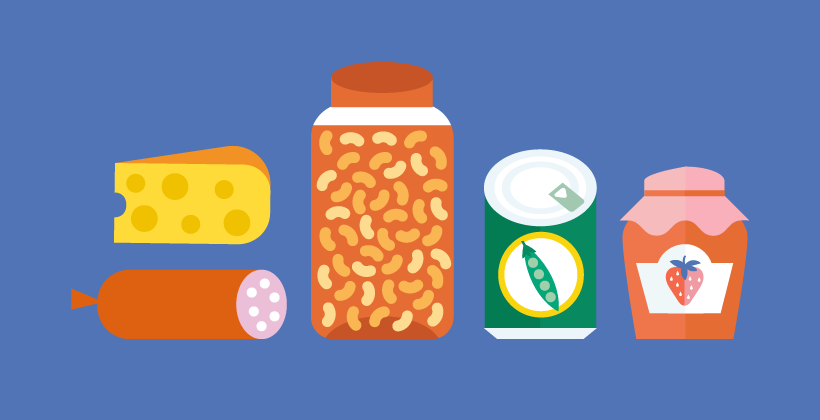
This study analyzed the effects of the following different processing methods: raw, pasteurized, and high temperature sterilization (HTS) made with the same ingredients and nutrients (based on dry matter) on serum parameters, apparent total-tract macronutrient digestibility, fecal microbiota and short-chain fatty acid (SCFA) content in beagle dogs. In this study, eighteen adult beagles of the same age and health status (assessed by routine blood tests) were used in the experiments. However, previous studies have mostly been based on a comparison of several commercial dog foods with different ingredients. The role of polyphenols in modern nutrition.Food processing methods may influence the health of dogs.

Ultra-processed food and adverse health outcomes. Trans fatty acids and lipid profile: A serious risk factor to cardiovascular disease, cancer and diabetes.
#Who created food processing methods trial#
Ultra-processed diets cause excess calorie intake and weight gain: An inpatient randomized controlled trial of ad libitum food intake. Impact of sugar on the body, brain, and behavior. Eating highly processed foods linked to weight gain.You can learn more about how we ensure our content is accurate and current by reading our editorial policy. We link primary sources - including studies, scientific references, and statistics - within each article and also list them in the resources section at the bottom of our articles. Medical News Today has strict sourcing guidelines and draws only from peer-reviewed studies, academic research institutions, and medical journals and associations. Other research indicates that eating highly processed foods can lead to weight gain.īelow, we look at seven reasons why processed foods can increase the risk to a person’s health. For each additional serving, all-cause mortality risk increased by 18%. The researchers reached this conclusion after accounting for saturated fat, sodium, sugar, and fiber intake.Īnother large study, involving almost 20,000 adults, found that eating more than 4 servings of processed food daily was linked with an increased risk of all-cause mortality. One large study, involving more than 100,000 adults, found that eating 10% more ultra-processed foods was associated with above a 10% increase in the risks of cardiovascular disease, coronary heart disease, and cerebrovascular disorders. These foods also contain less dietary fiber and fewer vitamins than whole foods. However, they usually contain ingredients that could be harmful if consumed in excess, such as saturated fats, added sugar, and salt. Ultra-processed foods tend to taste good and are often inexpensive. reconstituted meats, such as sausages, nuggets, fish fingers, and processed ham.baked goods, including pizza, cakes, and pastries.Some examples of ultra-processed foods include: These ultra-processed foods are sometimes called “cosmetic” foods, as compared with whole foods. They tend to have added chemical flavoring agents, colors, and sweeteners.


However, there is a difference between mechanical processing and chemical processing.Ĭhemically processed foods often only contain refined ingredients and artificial substances, with little nutritional value. If the processing does not add chemicals or ingredients, it does not tend to lessen the healthfulness of the food. Mechanical processing - such as grinding beef, heating vegetables, or pasteurizing foods - does not necessarily make foods unhealthful. The term “processed food” can cause some confusion because most foods are processed in some way.

Share on Pinterest Processed foods usually contain high levels of added sugars.


 0 kommentar(er)
0 kommentar(er)
